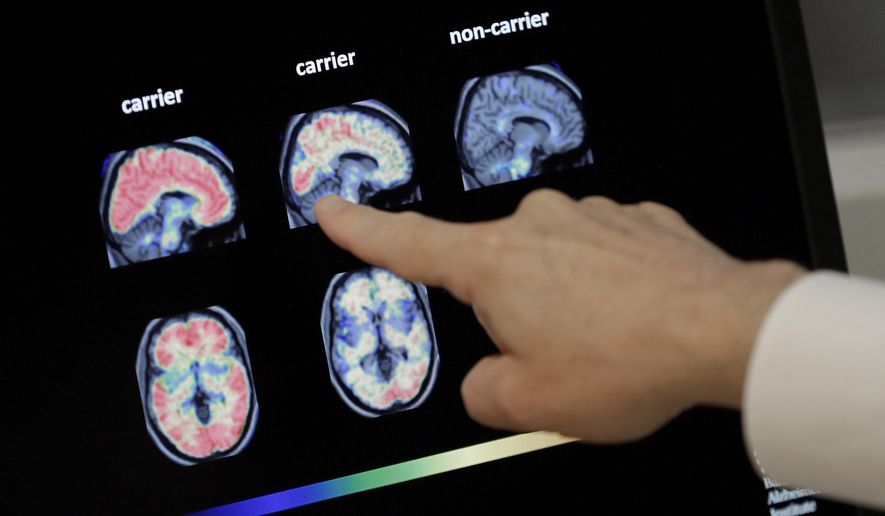Researchers found brain swelling in 35% of Alzheimer’s disease patients using aducanumab, a drug treatment newly approved by the Food and Drug Administration.
A study published Monday in the medical journal JAMA Neurology reported that 362 of 1,029 patients with Alzheimer’s disease who received the drug experienced brain inflammation in two late-stage trials. Of those 362 patients, 94 (about 26%) had symptoms such as headache, dizziness, nausea and confusion.
The researchers recommended that Alzheimer’s patients being treated with aducanumab to be monitored closely for amyloid-related imaging abnormalities (ARIA) such as brain swelling and bleeding.
The FDA approved the drug treatment in June, but safety findings have not been reported in a peer-reviewed journal previously, Medpage Today reported. Data on the drug’s effectiveness have not yet been published.
Dr. David Knopman of the Mayo Clinic, who was not involved in the study, told Medpage Today that it was “gratifying” to see details on the occurrence of ARIA in two aducanumab trials appear in a peer-reviewed publication.
Aducanumab has stirred controversy due to conflicting results from two large trials looking at whether the drug slows cognitive decline caused by Alzheimer’s disease. Following the drug’s approval, some of the FDA’s scientific advisers resigned in protest.
• Shen Wu Tan can be reached at stan@washingtontimes.com.




Please read our comment policy before commenting.